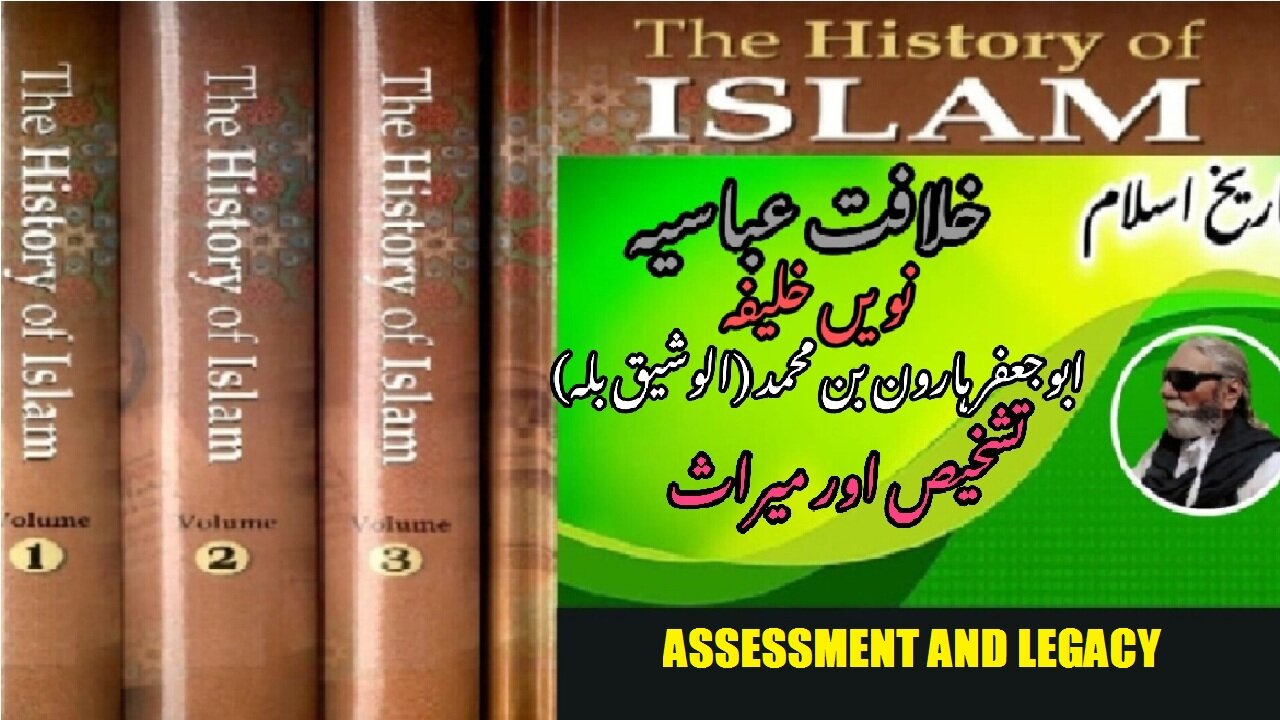Premium Only Content

Assessment and legacy of 9th Caliph of Abbasid Caliphate
@islamichistory813 #Islamiccaliphate #9thcaliph #AbbasidCaliphate
#assessmentandlegacy
Assessment and legacy of 9th Caliph of Abbasid Caliphate.
Al-Wathiq is reported as having been generous to the poor of the holy cities of Mecca and Medina,[3] and to have reduced taxes on maritime commerce,[32] but he does not appear to have enjoyed any great popularity.[3] What is told of his character shows him being a mild-mannered person,[32] given to indolence and the pleasures of court life, to the point of becoming inebriated and falling asleep.[64] He was an accomplished poet—more poems of his survive than of any other Abbasid caliph—as well as a skilled composer, and could play the oud well.[32] He was also a patron of poets, singers and musicians, inviting them to the palace.[32] He showed particular favour to the musician Ishaq al-Mawsili, the singer Mukhariq, and the poet al-Dahhak al-Bahili, known as al-Khali (lit.?'the Debauched One').[3][32]
In contrast to this picture, the 10th-century historian al-Mas'udi portrays al-Wathiq as "interested in scientific learning and facilitating disputations among physicians".[1] The Graeco-Arabic translation movement continued to flourish under his reign,[32] and the sources also relate some episodes that show al-Wathiq's own "intellectual curiosity", especially as related to issues that could burnish his religious credentials: he reportedly dreamed that the "Barrier of Dhu'l-Qarnayn" had been breached—probably resulting from news of the movements of the Kirghiz Turks at the time that caused large population shifts among the Turkic nomads of Central Asia—and sent the chancery official Sallam al-Tarjuman to journey to the region and investigate. Likewise, according to Ibn Khordadbeh, the Caliph sent the astronomer al-Khwarizmi to the Byzantines to investigate the legend of the Seven Sleepers of Ephesus.[3][65]
Al-Wathiq is one of the more obscure Abbasid caliphs. According to the historian Hugh Kennedy, "no other caliph of the period has left so little trace of the history of his times, and it is impossible to form any clear impression of his personality",[66] while the Encyclopaedia of Islam writes that "he had not the gifts of a great ruler, and his brief reign was not distinguished by remarkable events".[3] His very obscurity allowed William Beckford to present a heavily fictionalized version of al-Wathiq in his classic 18th-century Gothic fantasy novel Vathek, which Kennedy describes as "a fantastic tale of cruelty, dissipation and a search for the lost treasure of ancient kings, guarded by Iblis/Satan himself"
So friends tomorow we will be discribe Family, Death and succession of 9th Caliph of Abbasid Caliphate.
Allah Hafiz
=====================================
-
 9:31
9:31
ISLAMIC HISTORY
9 hours agoIslamic History Episode 238 Mutawakkil's circumstances and sincerity متوکل کے حالات و اخلاص
1 -
 LIVE
LIVE
GritsGG
10 hours agoQuad Win Streaks!🫡 Most Wins in WORLD! 3600+
102 watching -
 2:34:12
2:34:12
Spartan
3 hours agoScrims vs Mindfreak and then Ranked or another game idk
4.72K1 -
 1:35:57
1:35:57
Roseanne Barr
5 hours agoEnd-Time Prophecies REVEALED: Jonathan Cahn’s Warning
142K47 -
 1:08:58
1:08:58
vivafrei
6 hours agoComey INDICTED! Proof Jan. 6 was a FED-SURRECTION! Ostrich Crisis Getting More Attention & MORE!
140K94 -
 LIVE
LIVE
StevieTLIVE
1 hour agoBirthday Bash HYPE Warzone Wins ALL NIGHT
17 watching -
 6:30:53
6:30:53
Dr Disrespect
8 hours ago🔴LIVE - DR DISRESPECT - ARENA BREAKOUT: INFINITE - STORM EVENT
169K9 -
 3:35:23
3:35:23
Barry Cunningham
8 hours agoPRESIDENT TRUMP SPEAKS ON JAMES COMEY INDICTMENT! MORE TO COME! DELICIOUS LIBERAL MELTDOWNS!
79.3K40 -
 25:59
25:59
Simply Bitcoin
1 day ago $1.95 earnedMichael Saylor Reveals $81T Bitcoin Plan to Cancel National Debt?!
37.6K7 -
 1:33:51
1:33:51
Steve-O's Wild Ride! Podcast
1 day ago $1.68 earnedJohn C. Reilly's Surprising Connection To Jackass (And Beef With Weeman!)
61.1K7